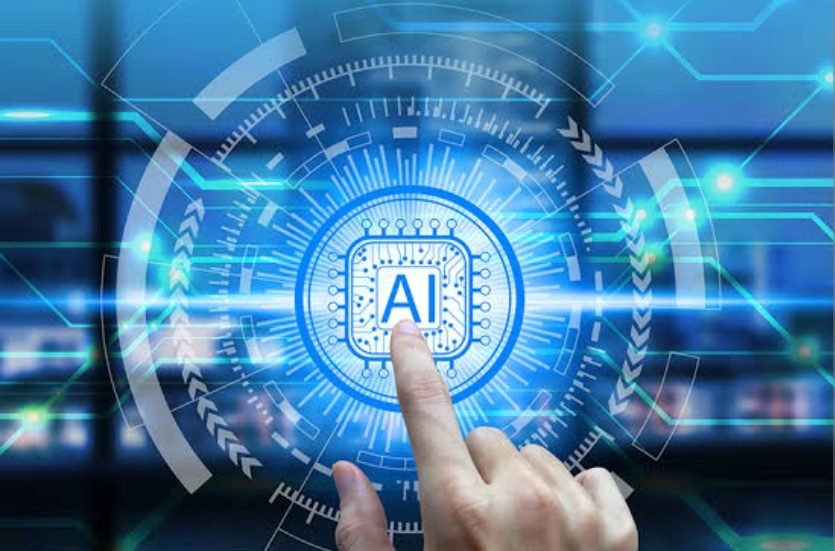Table of Contents
Explore how AI revolutionizes app personalization, enhancing user experiences with tailored content, recommendations, and interactive features.

ai_personalization
The Role of AI in Personalizing User Experience in Apps
Personalization has become a key factor in providing exceptional user experiences in today’s digital age. Users expect interfaces tailored to their preferences, needs, and behaviors. This is where the power of Artificial Intelligence (AI) comes into play.
AI is revolutionizing the world of app design by enabling dynamic and contextually relevant interactions that enhance user engagement, satisfaction, and loyalty. In this article, we will explore the pivotal role of AI in personalizing user experiences in apps and discuss its impact on the digital landscape.
Understanding AI-Powered Personalization
AI-driven personalization leverages machine learning algorithms to analyze user data and behavior, enabling designers to create customized experiences. By continuously learning from user interactions, AI algorithms adapt and optimize the user journey in real time, ensuring each interaction is tailored to the individual. AI can understand user preferences, habits, and patterns, allowing for highly personalized app experiences.
AI algorithms can analyze user data such as browsing history, search queries, and interactions within the app to deliver content and recommendations that align with individual interests. Whether suggesting relevant products, articles, or videos, AI ensures that users are presented with options that resonate with them. This level of personalization not only increases user engagement but also improves conversion rates.
1. Dynamic User Interfaces
One of the key benefits of AI in personalizing user experiences is the ability to create dynamic user interfaces. AI-powered interfaces adapt based on user behavior, preferences, and context. Elements such as layout, color schemes, and content placement can be dynamically adjusted to create a seamless and intuitive experience. This adaptability enhances user satisfaction by providing a design that aligns with each user’s unique preferences.
2. Anticipatory Design
AI’s predictive capabilities, through anticipatory design, allow the interface to foresee user needs and act proactively. For example, an e-commerce app, by analyzing the user’s browsing and purchase history, can offer personalized product recommendations. To see how this works in action, you can click here. This approach enhances user convenience and fosters a feeling of personalization, as the app appears to understand and cater specifically to the user’s needs.
3. Natural Language Processing (NLP)
NLP, a subset of AI, enables conversational interactions between users and apps. Chatbots and virtual assistants powered by NLP understand user queries and provide relevant responses. This personalized communication style enhances user engagement and provides instant assistance. NLP also enables voice recognition, allowing users to interact with apps through voice commands. Voice-activated interfaces are becoming increasingly popular, and AI enables natural and efficient interactions.
4. Behavioral Insights and Personalization
AI analyzes user behavior patterns to uncover insights that inform personalization strategies. By understanding how users navigate and interact with an app, designers can optimize layouts, calls-to-action, and content delivery to enhance user engagement and conversions. AI-powered analytics provide designers with valuable data on user preferences, challenges, and interactions, allowing for continuous user experience improvement.
5. Segmentation and Micro-Personalization
AI allows for precise audience segmentation and micro-personalization. Content can be tailored to specific user groups based on demographics, behaviors, or preferences. Micro-personalization creates a sense of exclusivity and relevance, encouraging deeper user engagement. By delivering highly targeted and personalized content, apps can enhance user satisfaction and loyalty.
6. A/B Testing and Optimization
AI can facilitate A/B testing by analyzing user responses to different design variations. This data-driven approach ensures design decisions are rooted in user preferences and behavior. Optimization driven by AI leads to continuous improvement of the user experience, allowing apps to evolve and adapt to changing user needs and preferences.
7. Emotion Detection and Response
AI can analyze user facial expressions, voice tone, and interactions to gauge emotional states. This data can customize the app’s response, adapting content and interactions to match the user’s emotional context. By recognizing and responding to users’ emotions, apps can create more empathetic and engaging experiences.
8. Ethical Considerations and User Consent
While AI-driven personalization offers immense benefits, designers must prioritize user privacy and obtain consent for data collection and personalization. Transparency and user control over data sharing are essential to ensure AI’s ethical and responsible use in app design. Designers should be mindful of any biases arising from AI algorithms and take steps to mitigate them.
The Future of Personalized User Experiences
As AI advances, its integration into app design will reshape how users interact with digital interfaces. The role of AI in personalizing user experiences is not just a trend – it’s a transformative force that is reshaping the digital landscape and setting new standards for user-centric design.
With AI-powered personalization, apps can deliver tailored experiences that boost engagement, brand loyalty, and conversions. The future of app design lies in creating interfaces that anticipate and adapt to user needs, providing seamless and highly personalized experiences.
Conclusion
In conclusion, AI’s role in personalizing app user experiences is revolutionizing the digital landscape. Through AI-driven personalization, apps can create experiences tailored to individual preferences, needs, and behaviors.
From dynamic user interfaces to anticipatory design and personalized content recommendations, AI enables designers to create app experiences that resonate with users on a personal level. As AI technology evolves, its integration into app design will continue to shape the future of user experiences, fostering deeper engagement, satisfaction, and loyalty.

